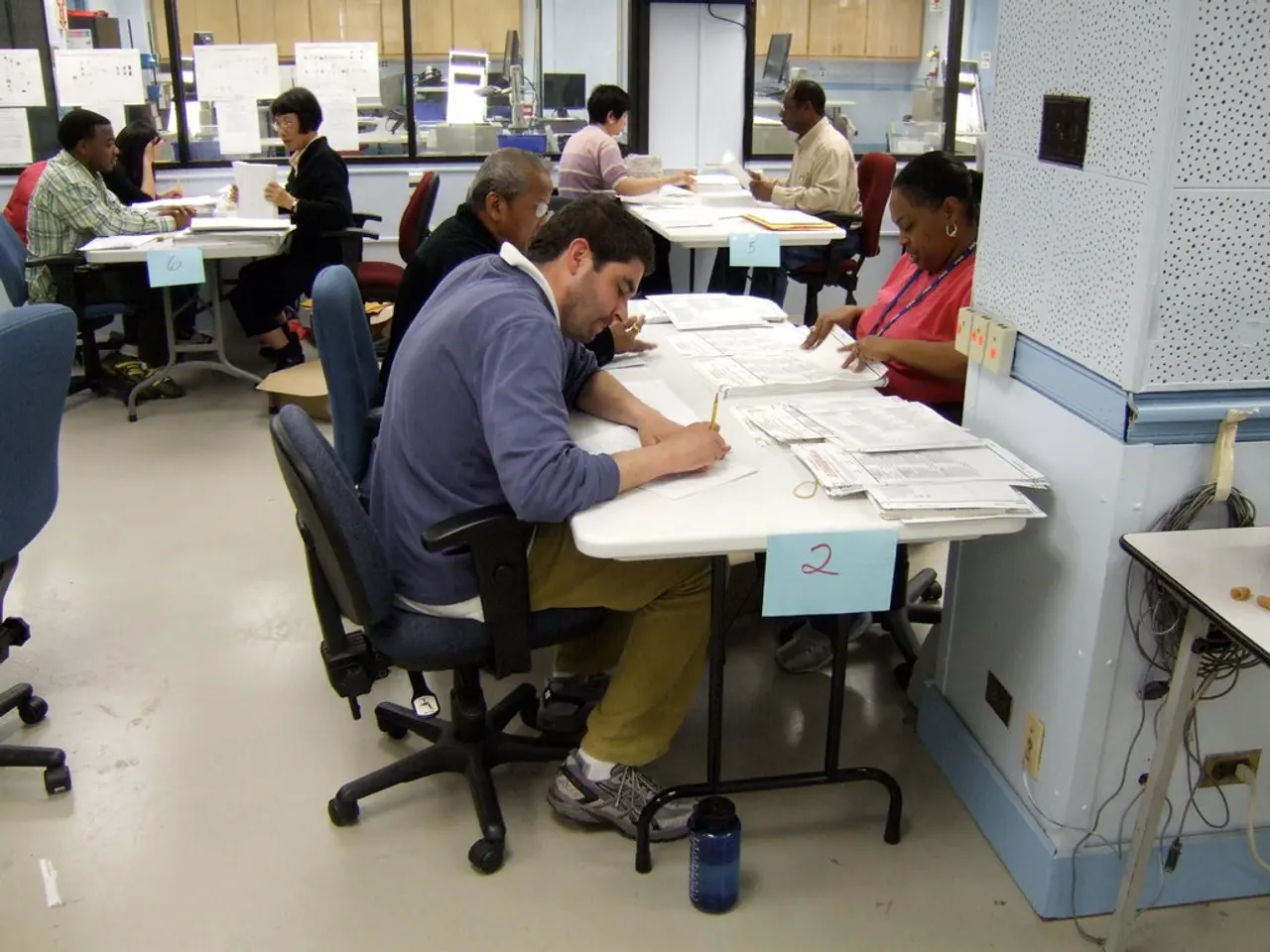Strategies for Managing Excessive Rumination in Attention Deficit Hyperactivity Disorder (ADHD)
Struggling with constant, endless thoughts in your head? Here's a guide for managing overthinking in ADHD, specifically designed for individuals with Attention Deficit Hyperactivity Disorder.
Mastering the Maze of Thoughts in ADHD
Overthinking can be a real pain in the neck, but it can have a significant impact on people with ADHD, causing anxiety, depression, and isolation. Fortunately, there are effective ways to tackle overthinking and better manage ADHD symptoms. Here are some methods to help you break free from the loop of never-ending thoughts.
Understand Your Thinking Triggers
Identify the factors that set off your overthinking. Lack of sleep, unhealthy eating habits, stress, and seeking people's validation are common triggers. Once you recognize what sets you off, you can take steps to minimize these factors and stay calm when faced with them.
Write it Out
Journaling is a great way to transfer your thoughts out of your head and onto paper. It gives organization and structure to your unstructured ADHD brain, allowing you to sort out your feelings and thoughts.
Talk it Out
Sharing your thoughts with someone you trust can help process your thoughts just as journaling does. Talking allows you to get your anxious thoughts out of your head, strengthen connections, get feedback, and feel validated. Just make sure the person you choose is non-judgmental and willing to listen.
Exercise
Physical activity acts as a natural antidote to overthinking, boosting your response to other ADHD treatments. Plus, some exercises can help you stay focused, leaving less time for your thoughts to race. Martial arts, for example, can be an excellent choice to keep your mind focused on physical movements.
Flip Your Perspective
Negative thoughts and unrealistic expectations pave the way for anxiety and overthinking. Try adjusting your perspective and re-framing negative thoughts into positive ones. Instead of dwelling on a parking ticket, remind yourself to read parking signs carefully next time. Focusing on realistic expectations will help reduce anxiety and overthinking.
Perform a Random Act of Kindness
Focusing on other people's problems can help push your own to the back burner. Volunteering, donating, or offering help online are some ways to do a good deed and have less time to overthink your own issues.
Actively Process Your Concerns
Though most thoughts tied to overthinking are irrational, some are related to problems that can be solved. Write down your concerns and possible solutions, breaking down unmanageable tasks into smaller, actionable steps. Or, if you're overthinking about something from the past, take steps to prevent it from happening again.
Find a Distraction
Sometimes, your thoughts just need to be pushed aside. A healthy distraction can help you refocus and redirect your thoughts. Try watching TV, playing games, or listening to music to find what works best for you.
Get Organized
A task manager can help you stay on top of your to-do list and reduce overthinking. Scheduling your tasks ensures you won't forget them, helping you feel more grounded and less overwhelmed. This also helps with distance learning for children with ADHD.
Tips for Taming Your Overthinking in ADHD
Overthinking and ADHD can be a lethal combination, but with the right strategies, you can conquer overthinking and better manage your ADHD symptoms. Don't forget to consult a mental health specialist for additional support if needed. They may recommend group therapy, cognitive behavioral therapy, or other options for managing excessive thought loops effectively.
Support Our Advocacy Efforts
Help us continue to fight for a better world for people with ADHD. Donate Now.
References:
[1] Psychology Today (2019). How to Reduce Overthinking and Rumination. Retrieved from https://www.psychologytoday.com/us/blog/science-mind/201905/how-reduce-overthinking-and-rumination[2] Hallowell, E. (2017). Cognitive Behavioral Therapy (CBT) and ADHD. Retrieved from https://www.psychologytoday.com/us/blog/the-distracted-executive/201705/cognitive-behavioral-therapy-cbt-and-adhd[3] Gill, N. (2018). Practical Strategies for Overcoming Mental Paralysis and Breaking the Cycle of Overthinking. Retrieved from https://www.additudemag.com/adhd-psychotherapist-overthinking-mental-paralysis-strategy-adhd- symptoms/
- Recognize that overthinking can lead to mental health issues such as anxiety and depression, and seek help from a mental health specialist if necessary.
- Incorporate education on mental health, nutrition, fitness-and-exercise, and health-and-wellness practices into your daily routine to improve overall well-being.
- As a parent, take the time to learn about autism and ADHD to better understand your child's struggles and find effective strategies to support their mental health.
- Science shows that treating ADHD and overthinking through a combination of medications, therapy, and lifestyle changes can lead to significant improvements in mental health and quality of life.








